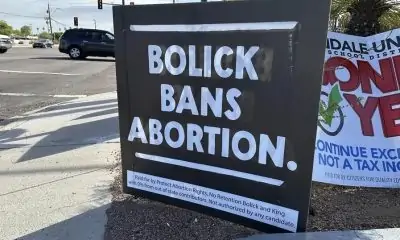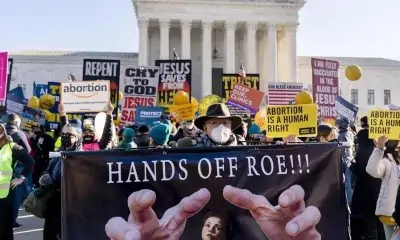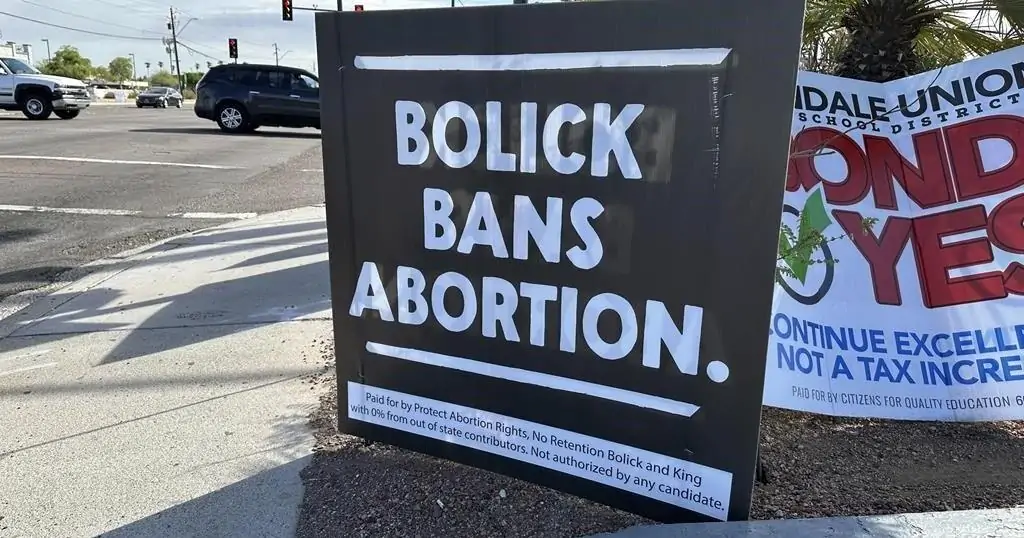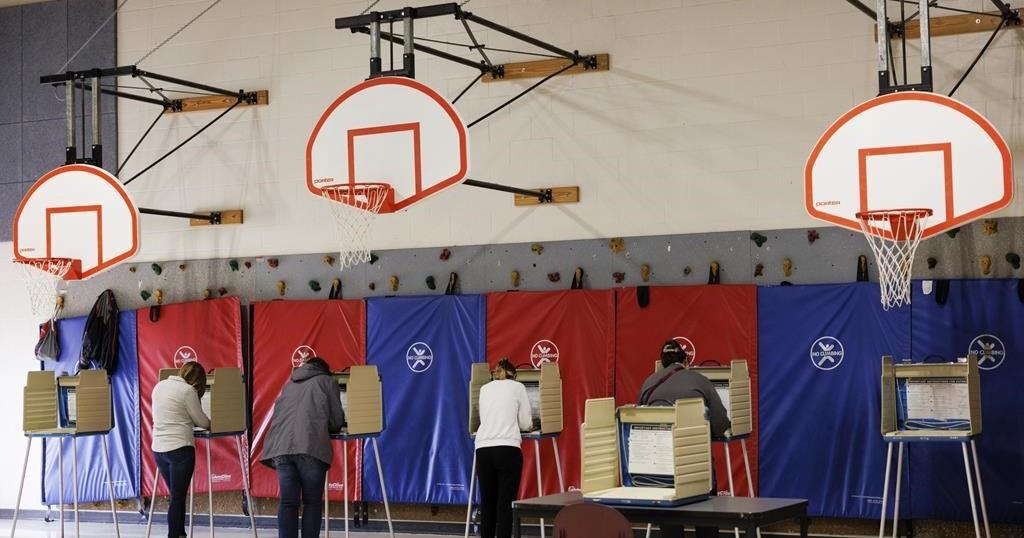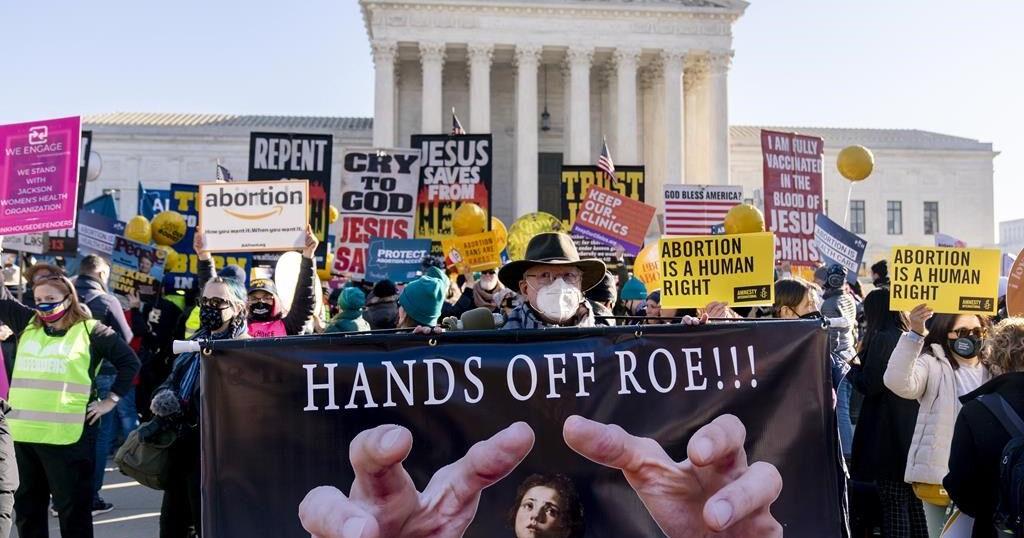PHOENIX (AP) — Arizona voters have approved a constitutional amendment guaranteeing abortion access up to fetal viability, typically after 21 weeks — a major win for advocates of the measure in the presidential battleground state who have been seeking to expand access beyond the current 15-week limit.
Arizona was one of nine states with abortion on the ballot. Democrats have centered abortion rights in their campaigns since the U.S. Supreme Court overturned Roe v. Wade in 2022. Abortion-rights supporters prevailed in all seven abortion ballot questions in 2022 and 2023, including in conservative-leaning states.
Arizona for Abortion Access, the coalition leading the state campaign, gathered well over the 383,923 signatures required to put it on the ballot, and the secretary of state’s office verified that enough were valid. The coalition far outpaced the opposition campaign, It Goes Too Far, in fundraising. The opposing campaign argued the measure was too far-reaching and cited its own polling in saying a majority of Arizonans support the 15-week limit. The measure allows post-viability abortions if they are necessary to protect the life or physical or mental health of the mother.
Access to abortion has been a cloudy issue in Arizona. In April, the state Supreme Court cleared the way for the enforcement of a long-dormant 1864 law banning nearly all abortions. The state Legislature swiftly repealed it.
Voters in Arizona are divided on abortion. Maddy Pennell, a junior at Arizona State University, said the possibility of a near-total abortion ban made her “depressed” and strengthened her desire to vote for the abortion ballot measure.
“I feel very strongly about having access to abortion,” she said.
Kyle Lee, an independent Arizona voter, does not support the abortion ballot measure.
“All abortion is pretty much, in my opinion, murder from beginning to end,” Lee said.
The Civil War-era ban also shaped the contours of tight legislative races. State Sen. Shawnna Bolick and state Rep. Matt Gress are among the handful of vulnerable Republican incumbents in competitive districts who crossed party lines to give the repeal vote the final push — a vote that will be tested as both parties vie for control of the narrowly GOP-held state Legislature.
Both of the Phoenix-area lawmakers were rebuked by some of their Republican colleagues for siding with Democrats. Gress made a motion on the House floor to initiate the repeal of the 1864 law. Bolick, explaining her repeal vote to her Senate colleagues, gave a 20-minute floor speech describing her three difficult pregnancies.
While Gress was first elected to his seat in 2022, Bolick is facing voters for the first time. She was appointed by the Maricopa County Board of Supervisors to fill a seat vacancy in 2023. She has not emphasized her role in the repeal vote as she has campaigned, instead playing up traditional conservative issues — one of her signs reads “Bolick Backs the Blue.”
Voters rejected a measure to eliminate retention elections for state Superior Court judges and Supreme Court justices.
The measure was put on the ballot by Republican legislators hoping to protect two conservative justices up for a routine retention vote who favored allowing the Civil War-era ban to be enforced — Shawnna Bolick’s husband, Supreme Court Justice Clint Bolick, and Justice Kathryn Hackett King. Since the measure did not pass, both are still vulnerable to voter ouster, though those races hadn’t been decided by early Wednesday morning.
Under the existing system, voters decide every four to six years whether judges and justices should remain on the bench. The proposed measure would have allowed the judges and justices to stay on the bench without a popular vote unless one is triggered by felony convictions, crimes involving fraud and dishonesty, personal bankruptcy or mortgage foreclosure.



